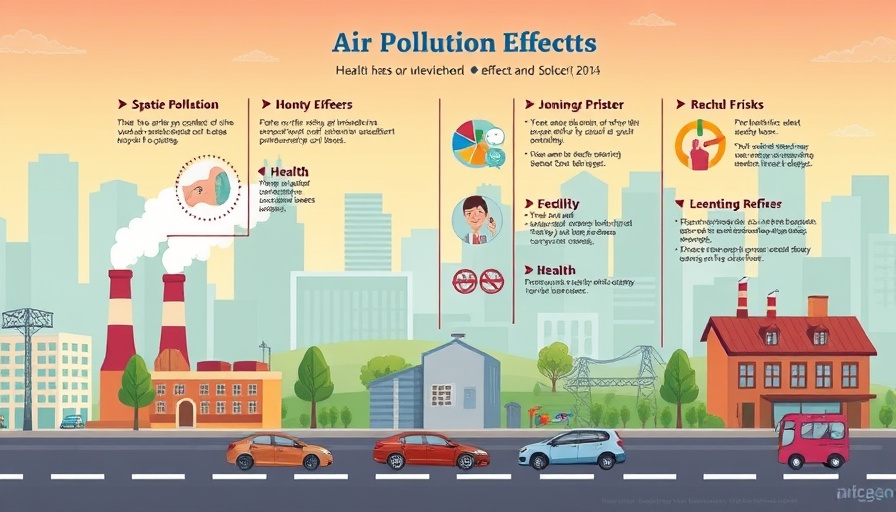
Understanding the Impact of Air Quality on Surgical Outcomes
In an environment where healthcare outcomes are paramount, a recent study has illuminated a concerning link between poor air quality and worse surgical results among Medicare patients. As surgical procedures grow increasingly intricate, the underlying factors affecting recovery must be scrutinized. This growing body of evidence illustrates that air quality is far more than a matter for environmental activists; it holds serious implications for patient health outcomes.
The Study and Its Findings
Researchers have delved into extensive data from Medicare patients undergoing various surgical procedures. What they found was alarming: patients who lived in regions with heightened levels of air pollution exhibited poorer surgical outcomes compared to their more fortunate counterparts in cleaner environments. Indications include longer recovery periods, higher complication rates, and increased mortality risks within 30 days post-surgery.
Air Pollution: A Hidden Surgical Risk Factor
While challenges in the operating room are expected, awareness of external factors such as air pollution could reshape surgical protocols. Analyzing fine particulate matter (PM2.5), a major pollutant linked to respiratory and cardiovascular diseases, the data indicated that even small increases in pollution levels could adversely impact healing and recovery processes. As America battles air quality issues, scrutinizing its correlation to health risks will be essential for patient advocacy.
Broader Implications for Healthcare Policy
This finding is not only vital for individual patients but also calls for a reevaluation of healthcare policies to account for environmental determinants of health. With proposed legislation aimed at reducing emissions and improving air quality, the connection between legislative action and health outcomes should not be dismissed. Policymakers must consider these studies, emphasizing a comprehensive approach to public health that goes beyond traditional medical care.
Comparative Insights from Recent Studies
A study published in Environmental Research corroborates these findings, indicating that surgical patients residing in cleaner areas experienced more favorable outcomes in similar health demographics. Surgical complications were reduced significantly in regions with proactive air quality management measures. This cross-study validation reinforces the notion that for optimal healing, clean air is crucial.
What Can Be Done?
As acknowledged in the aforementioned studies, action must follow awareness. Patients can advocate for better air quality measures in their communities, participating in local events promoting cleaner practices such as reduced emissions from vehicles and industries. Furthermore, healthcare providers should be cognizant of a patient’s environmental context when discussing surgical risks and recovery plans.
Future Directions: Enhancing Patient Safety
Looking forward, integrating environmental health into pre-operative assessments can become a norm. Establishing clear guidelines regarding air quality considerations could lead to improved outcomes. Communities could benefit from programs that monitor air quality and alert patients regarding potential risks.
Conclusion: A Call for Awareness and Action
As we navigate through emergencies such as pandemics and climate change, reassessing our understanding of surgical risks through the lens of air quality should become a priority. Clear correlations have emerged demonstrating that healthier environments lead to healthier patients. As both healthcare professionals and patients become increasingly aware, this issue requires prompt action to safeguard outcomes.
 Add Row
Add Row  Add
Add 




 Add Row
Add Row  Add
Add 








Write A Comment